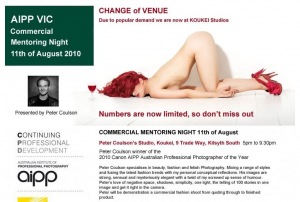It has long been my goal to help girl move beyond Bratz, Britney and Bacardi Breezers.
Girls are excelling in all kinds of ways – academically, socially and on the sporting field to name a few – but underneath that facade of success, our girls are in trouble. While they may appear to be coping with all that life throws at them, behind closed doors many are silently imploding. Teenage girls exist in a world of peer pressure and unrealistic self-expectations, a world subtly skewed by the insidious marketing hype of popular girl brands such as Bratz, Britney and Bacardi Breezers. And it is poisoning them at a most vulnerable age.
The statistics show there is much to be alarmed by. A quarter of teenage girls surveyed in Australia say they would get plastic surgery if they could. Among 15-year-old girls, almost seven in ten are on a diet, and of these, 8 per cent are severely dieting. Peer pressure is a cause of pain for many, with six in ten girls saying they have been teased about their appearance.
Seven out of ten young women engage in binge drinking – consuming five or more alcoholic drinks on one occasion – and almost one in five do so on a weekly basis. An alarming 12 per cent of girls report drinking harmful levels of alcohol – more than five standard drinks on any one day – and twice the number of teenage girls use drugs, compared with boys.
Pressure at school is also an issue, with nearly two out of three girls questioned in an Australian survey saying they feel stressed about their studies.
As many as one in ten teenage girls self-harm. Male suicide rates remain considerably higher than female suicide rates, but there is evidence to suggest that women, particularly those under twenty-five, attempt suicide and commit self-harm at a higher rate than men. It is estimated that for each female suicide, there are 150 to 300 acts of self-harm performed by females.
It seems that unprotected sex is resulting in unwanted outcomes for some. Sexually transmitted diseases are on the increase among young people. It has been estimated that as many as 28 per cent of teenagers have chlamydia. In Australia, pregnancy termination, or abortion, is the second most common hospital procedure for females aged 12 to 24 years.
All of this troubles me, and my Enlighten team. Deeply. It is our life’s work to help girls navigate the more toxic elements of girl world. To critique. To question. To demand more for themselves and their sisters.
To date Enlighten Education has had much success in this area. We currently work with approximately 20,000 young women right across Australia and New Zealand every year. Our Testimonials indicate the work we are doing significantly changes culture and provides girls with the skills they need to make sense of their increasingly complex world.
Danni…what can I say! I have just read the comments on facebook…
What you achieved with our girls yesterday was remarkable. It is a message that we could not achieve in two years!! I really want to thank you.
Being a new (relatively young) Principal in a girls school, yesterday really gave me a good opportunity to reflect on my own wishes for our students. I love being a Teacher and a Principal and I really love Clonard and each of the students that I have been blessed with in caring for. Watching our students respond to you was an amazing experience.
Clonard is a truly special place. I am very proud of our girls. It was an absolute privilege to sit through all of your sessions finding myself captivated by every moment. What I really couldn’t get over at the end was the line of girls that just wanted to hug you and say thanks. Talk about special!!!
A number of the teachers there yesterday came up to me and said how much they had learnt. It’s true…you can teach a teacher!!!
I feel that your powerful message will stay with these students for their journey through Clonard. I know it will be something that I will refer back to when the going gets tough.
I feel privileged to have met you, listened to you and learnt from you. I do know now what Jemma and Mel (our two Yr 11 girls who attended the Insight Conference) were talking about!!!
Thank you and I hope that we can have you back in 2011.
Damian McKew, Principal, Clonard College, Geelong West, Victoria
Enlighten provided the most successful presentation relating to Pastoral Care in our school in 2010. Dannielle’s understanding of the issues that influence self esteem and behaviour in teenage girls is evident. Even more importantly, many of our girls have commented on the way that Dannielle’s message has begun to influence their everyday attitude towards body image and the objectification of women in the media. St Clare’s will certainly integrate ‘The Butterfly Effect’ into our Pastoral Care program in the future.
Patrick McGing, Assistant Principal, St Clare’s College, Waverley
Just wanted to pass on to your company what a wonderful afternoon our Year 7-9 girls have just experienced. Your presenter Nikki was just terrific and she had the girls eating out of her hands! The content was spot on and the girls certainly left on a real high. It was a pleasure reading the feedback sheets and we look forward to working with your company again.
Kristen Waldron, Hamilton College, Hamilton, Victoria
The girls thoroughly enjoyed the day, and I believe they took a lot away with them. The topics covered on the day were very relevant to the girls and where they are in their lives. Dannielle knew her material and knew how to reach out to the girls in a way that made them want to listen and change and take on board the messages she presented to them. The information night presented to parents was informative and the parents came away enlightened and with positive strategies on how to deal with their teenage girls. Parents were very grateful for the opportunity to listen to Dannielle.
We will definitely invite Enlighten Education to work with our students again and hope we will have the opportunity for Dannielle to present to our parents again in the future.
Kathy Harris, Year 8 Coordinator, Mt Lilydale Mercy College, Lilydale, Victoria

In 2011 we will be expanding our services to ensure we ensure we offer more support to parents and educators who wish to raise amazing girls. To this end, we have developed a range of affordable resources we hope every girl will be able to access. You may view these, and order, at the new Shop page of this blog.
I shall be taking a few weeks off over Christmas to enjoy my new home and celebrate Christmas. I’d like, therefore, to take this opportunity to sincerely thank all our blog subscribers, client schools, and the many thousands of young women we have been privileged enough to meet over the course of 2010. We now have over 4,750 young women as “Fans” on Facebook and we love hearing from them all. They truly grace us with the most heart-warming support for our work. Who said the revolution was over? We’re just warming up!
I wish all my readers much Love, Light and Laughter.
And new beginnings in 2011…



